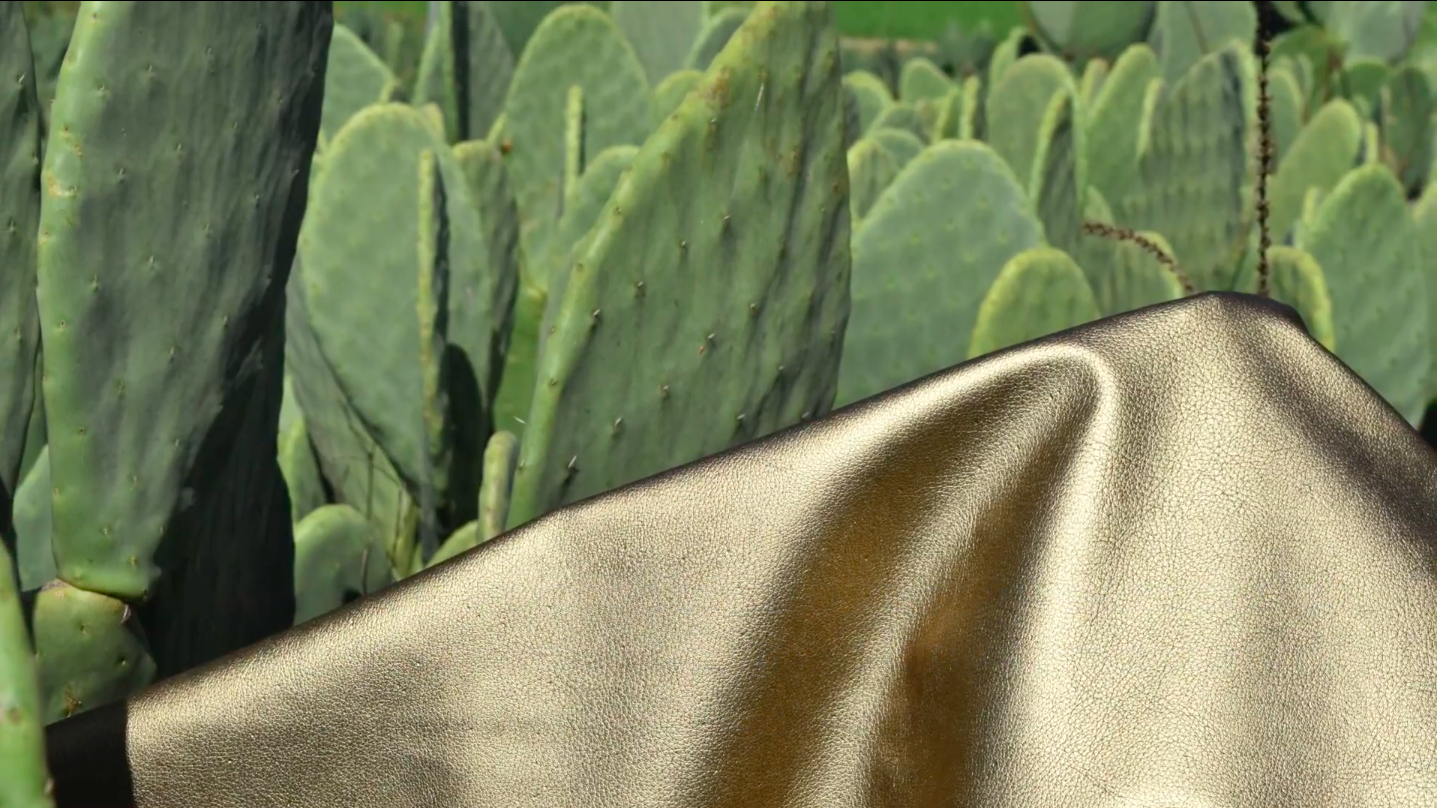Food Waste, But Make It Fashion
Some vegan leather is made using fruit waste, bacteria, prickly-pear cactus, and more.
There are a lot of vegan products out on the market that aren't food-related, like soap, makeup, and more. One vegan product, however, is a kind you'd heavily associate with animals, and that's leather. Leather is ordinarily made from the hides of various animals, as you know, and is a timelessly fashionable material for lots of people. Considering it's the opposite of vegan friendly, there's a high demand for a reasonable vegan facsimile of leather. A Mexican company named Polybion has found a novel way to create the material, and that's by using bacteria and food waste, reports VegNews.
How is vegan leather made?
This food waste is plant-based (duh), and its source is agricultural industrial material that would otherwise be considered garbage. The resulting vegan leather product is called Celium. It's made with bacteria that are fed the agricultural waste product that in turn, create cellulose, a natural plant-based fiber. Once the cellulose has been churned out, it goes through a stabilization process that gives it leather-like qualities. Cool stuff.
Other synthetic leathers are made of material you'd typically expect from something shiny and smooth, like polyurethane. I'm sure you've all encountered pleather somewhere. Considering polyurethane is a highly unnatural product, the bacterial process Polybion employs is pretty unique. There are a handful of plant-based alternatives out there too, like a sustainable vegan leather that's made entirely from prickly-pear cactus, manufactured by a company called Desserto.
Desserto is partially biodegradable, and has a texture that's remarkably like leather, no animals involved. Companies like watchmaker Fossil and clothing store H&M have used Desserto for vegan lines of goods too.
Even car manufacturer Tesla upholsters the inside of its vehicles with vegan leather (Car and Driver Magazine says the process began in earnest in 2016). BMW, Mercedes-Benz, Ferrari, and Lexus use vegan leather inside some of their luxury cars as well.
The goal for a lot of these vegan leather manufacturers is to be as sustainable as possible. Polybion recently secured $4 million in funding, which is going towards a solar-powered manufacturing facility in Mexico. The plant will eventually be able to crank out 1.1 million square feet of Celium per year. So who knows, you may eventually be wearing some slick plant waste on your feet and it'll even look good to boot.
